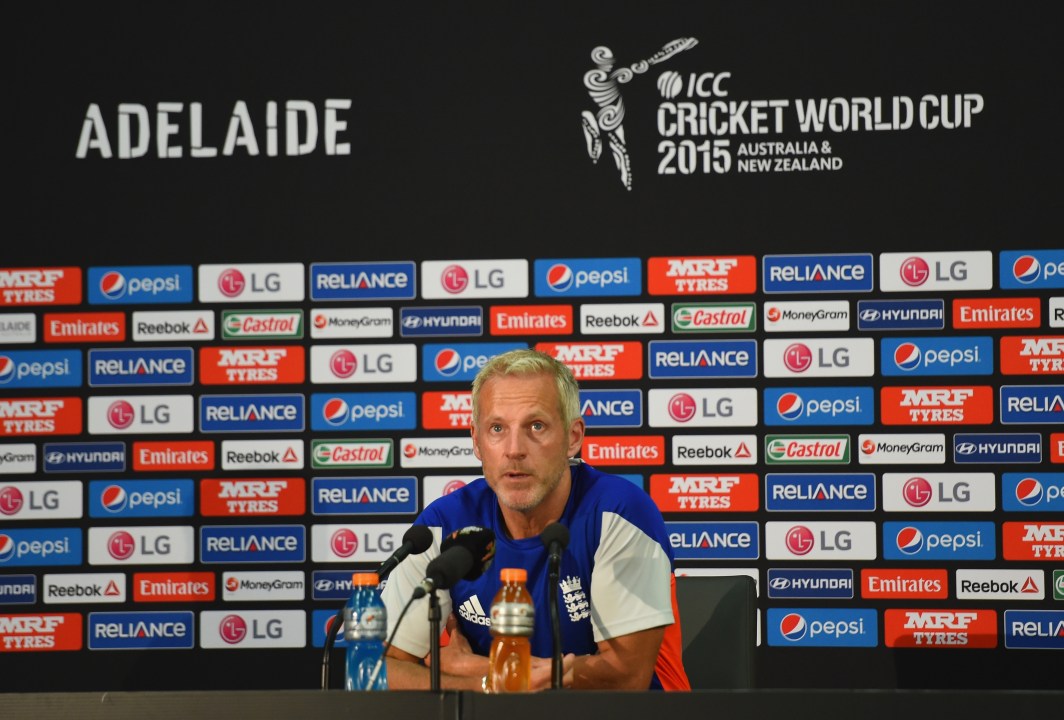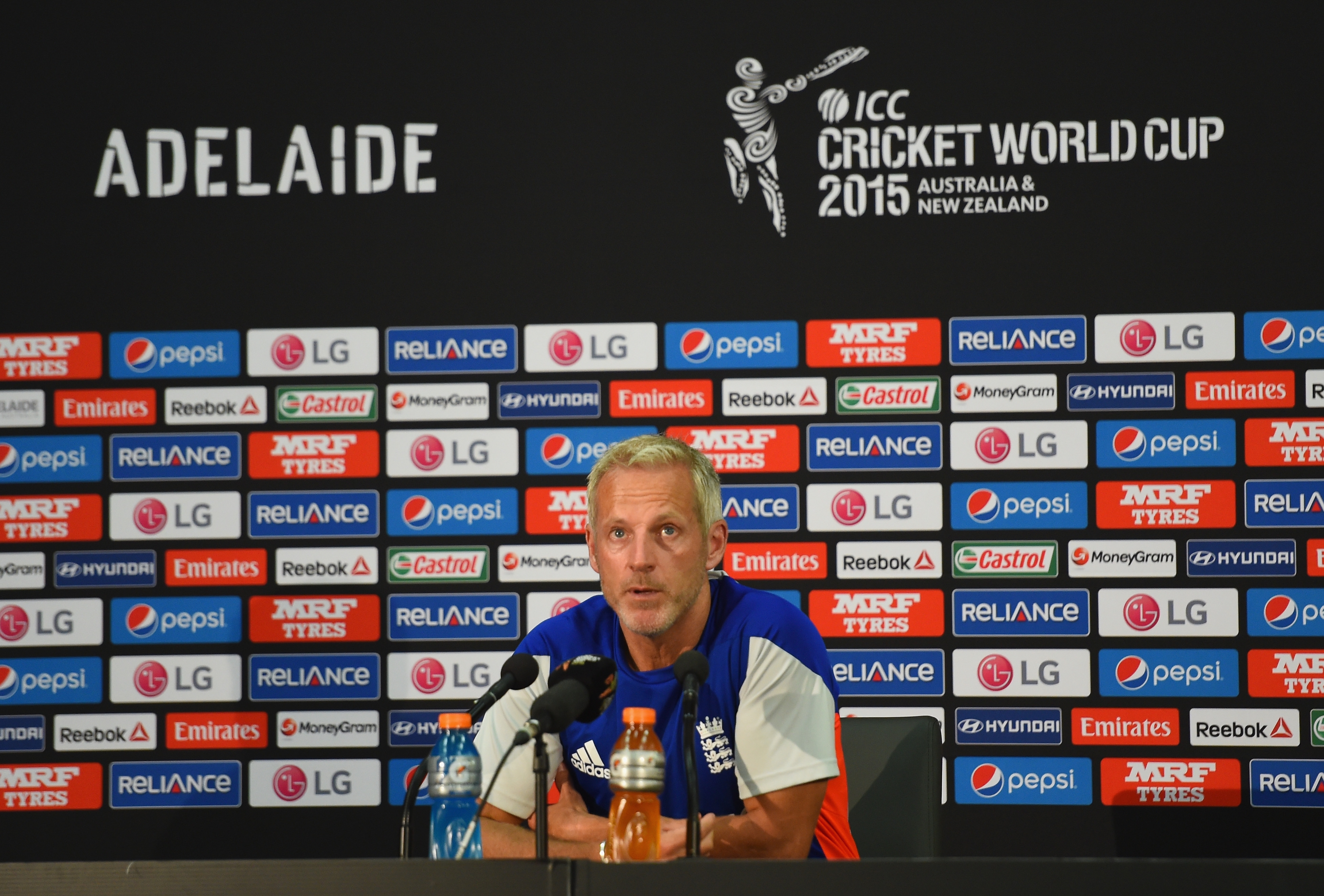“We’ve got to look at the data”. And so ended the Peter Moores era. Sure, Moores may yet remain the England cricket coach but he can never move on from the ignominy of this morning’s disaster in Australia. He could, at a pinch, remain in office but he’ll never again be respected.
“We’ve got to look at the data.” If ever there was an appropriate epitaph or this era of English cricket this is it. England have, under Moores, known the price of everything but the value of nothing. The data has given them heaps of information; they’ve had no idea what to do with it.
But why would they? Cricket is a complex game but not a mysterious one. It has changed much less than most people think. Sure, modern bats, modern balls, modern pitches and outfields and all the rest of it make this a more explosive game than it was in the past but the fundamentals remain much the same. A fast yorker remains harder to hit than a slow long hop.
England, however, think there’s some magic sauce that can unlock the mysteries of cricket. So they crunch numbers and discover that x percent of games are won by a score of y or that when z then b and if c then a+b = d. Is it any wonder then they play like humans impersonating robots?
Other people, other teams, take a simpler, less fussy, approach. They decide to play cricket. See ball, hit ball. An odd approach, it is true, but there you have it. They don’t obsess about their brand of cricket perhaps because there are only really two brands of cricket: good cricket and bad cricket. England, forgetting this, have played bad cricket.
Perhaps, it is true, they would have done better with Kevin Pietersen in the XI. But they could have played better with the players they actually have in the team. They have been hopeless but it’s not for want of talent. A different approach – like that taken by New Zealand – and this England team would be performing at a level better suited to its ability.
But the data helped imprison them. The data, doubtless, meant there could be no room in the side for James Tredwell. The data, doubtless, meant the batting order could never be adjusted to take advantage of or respond to a changed set of circumstances. The data said this and that and turned intelligent cricketers – for such we assume they must be – into morons.
It is true that it is only one day international cricket. True, too, however, that the World Cup s the one time one day international cricket really does matter and, this being the case, you might as well try and play it properly. England rejigged the Ashes schedule so they could have six months to prepare for this tournament. They had, in other words, ample opportunity to find and prepare their best side. Nor is it really a case that they don’t play enough ODI cricket. They play plenty; they just play much of it badly.
Moores, no doubt, will continue to argue the data was right, it’s just the players who let him down. No doubt. And yet when the opposition so consistently reminds you that the data doesn’t mean nearly as much as you think it does there comes a point when your theory has to be reconsidered. It has been stumped by reality.
It’s true that analytics can be useful. They can help illuminate how and why a team wins, breaking down a game into its constituent parts to see which of them is really the most important. It’s useful for sports such as ice hockey and football. But everyone knows how a game of cricket is won: you score more runs than the opposition and you try and avoid getting out.
A few years ago England enjoyed some success against Sachin Tendulkar because the data had told them that he tended to score most of his initial runs through the leg side. Gee, who would have thunk it? Best batsman in the world can play off his pads. Who knew that, to a new batsman, it’s a good idea to bowl a good length on and just outside off stump?
That’s what I mean when I say there’s less new than people think. Of course you have to make some adjustments but many, perhaps even most, of the underlying truths that have been true for generations remain true today. You don’t need simulations of thousands of games or any other data-crunching to work these things out. You just need a feel for the game and a willingness to run with it.
England, however, have in recent years confused professionalism with joylessness. The less fun anyone was having, the more professional England were being. Except it doesn’t work like that. All work – especially creative work (and sport is creative) – needs to include some fun. It is isn’t fun it most probably won’t be good. And if it isn’t good it certainly won’t be fun.
It’s tough to measure this sort of thing, however, so instead we assume that what’s important is what can be measured. That isn’t the case. It leads to a bad place. The kind of place in which the England cricket coach resopnds to defeat by Bangladesh by saying “We’ve got to look at the data” as though doing so will reveal that, according to the data, England really, kinda, sorta won this game and are still in the competition. According to the data, you understand.
What a perfect summation of all that’s wrong with English cricket. Its arrogance, its clever-clever stupidity, its unerring ability to focus on all the wrong things, its contempt for the game it professes to serve, its everything.
Which is also why although England have received everything they deserved this World Cup – precisely nothing – it is also the case that there’s no need to feel bad about disliking this particular England team. They deserve your scorn; they’ve certainly earned it. This is so even though it contains any number of admirable souls. Ali, Root, Buttler, Woakes, Taylor et al are not the problem. The problem is the system, the problem is the culture. The problem is the bloody data.








Comments